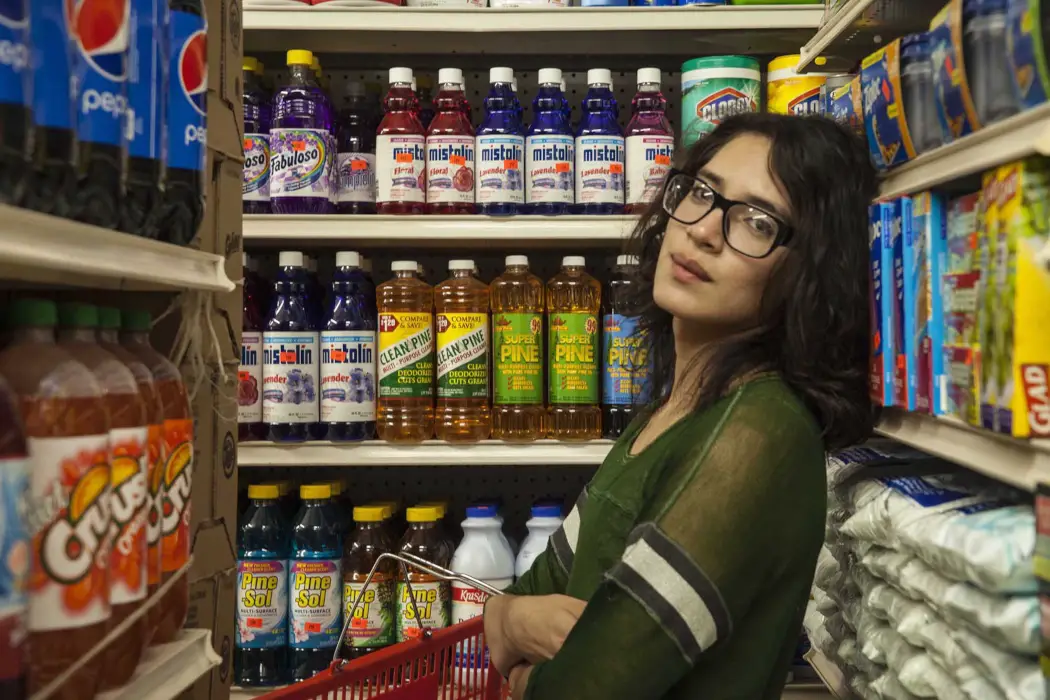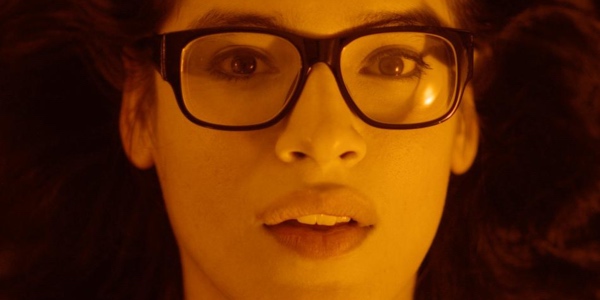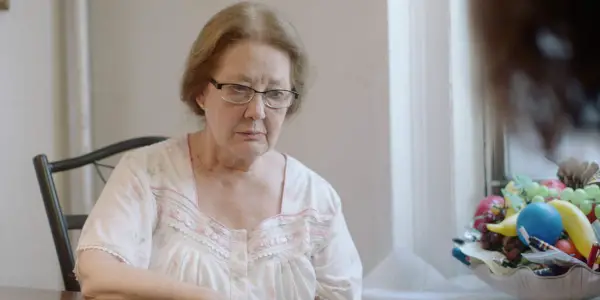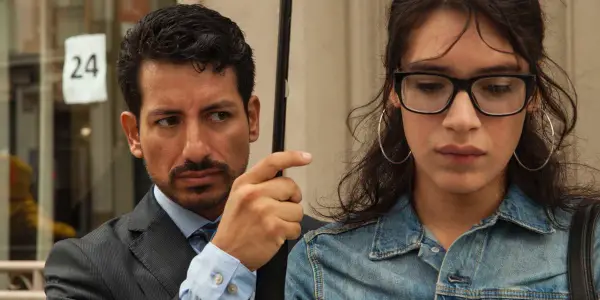THE GARDEN LEFT BEHIND: A Timely & Vital Look You Need To See

Stephanie Archer is 39 year old film fanatic living in…
Premiering at this years SXSW Film Festival, where it took home a SXSW Audience Award in the Visions program, and screening recently at the Cleveland International Film Festival, The Garden Left behind deserves every single accolade it draws in and every bit of praise it receives. The Garden Left Behind from writer and director Flavio Alves is a timely and a desperate examination on the suffering of a populace so commonly disregarded – both physically and emotionally – creating an exposure for those of us who may not know the violence and fear that greet these individuals at their doorstep each and every day. It is a film that sneaks up on you, crushing your heart through the vital and inescapable empathy it has slowly drawn out over the course of it. There are no questions surrounding the victory of The Garden Left Behind.
There is also an exquisite showcase of growth as well, not just in Tina (Carlie Guevara) the film’s main character, but in those around her – for the good and for the bad. A film quietly brewing the pot of social change, oppression, intolerance and acceptance – a melting pot of emotions and conflict mirroring the country it takes place in. If there is one film you see this year, you need to make it The Garden Left Behind.
The Face of Success
Tina is a NYC cab driver and an illegal immigrant, undergoing the beginning process of transition. Originally Antonio, and still called this by her Grandmother Eliana (Miriam Cruz), Tina walks a fine line through society. While her gender identification does not change the values and goals in her life, the world around her does – name-calling, hate, shame and violence lurking around every corner. As she begins her journey to change, so too does she begin her journey to find her voice – as well as acceptance of herself and from those around her.

The Garden Left Behind is an enlightening view into the journey one has to take when they have decided to begin the process of change. The fear and the uncertainty. The reservation of hope, keeping expectations in check, even when impatience and desire are bursting at the seems. The sessions with therapist Dr. Cleary (Edward Asner) are the most intense, knowing that for Tina, this man holds her future in his hands. More intense at times, because even though she faces adversity on the street, the fear of never transitioning to who she truly is would be devestating. And while Dr. Cleary has diagnosed and sent many onto the next step, he could find you are not fit to move forward, not a candidate – not right in what you are feeling. Having this intimate view into Tina’s personal world conflict contrasted with the outer world was a brilliant juxtaposition on where we place our values, the weight bearing on us from our true desires, and the true grip society has on our aspirations, goals and dreams.
I went into this screening rather blind. I had heard it was a winner at SXSW this year, and when offered a screener, I could not resist a chance to see one of the films displaying the highest caliber of craftsmanship at the festival this year. I am glad I went in blind, as there was so much more beauty to unfold as I went along. So much to discover about Tina, her process to transition and the life she maneuvers through. The emotional impact was that much greater having heard very little about the film. Though DO NOT let prior knowledge dissuade you. Where I found beauty in ignorance, it is clear to see a different and satisfying payoff with prior knowledge.
It has been a little time since my screening and I cannot shake the feelings it leaves you with. Burrowed deep into your mind are the visuals, the deep reds, blues and purples that fill the screen. The horrific imagery that launches seemingly out of nowhere, leaving you only moments later to grapple with what you had just seen. An edge of your seat, “what the – ?”, you are lost in confusion of why, just like the characters who face this persecution and violence every day.
Acceptance
Acceptance, and lack thereof, is a huge focus interlaced throughout Tina’s journey. There are her friends, (I never thought you would make it), her boyfriend, grandmother, the world (diagnosing her) and herself. This was handled so delicately and intimately, while at other times delivering the blow necessary to drive many of these avenues home.
When referencing her friends, Tina was embraced, though not without a silent contemplation on whether she would make it. They support her and push her along, but there is a doubt that she will make it, a failure to initially accept that she can do it. While this is driven by those that have come before Tina, it lays there just beneath the surface. There is Tina’s boyfriend (Alex Cruz) as well, who also seems initially accepting, though unlike her friends, lacks the followthrough to accept her.

Tina’s abuela Eliana, accepts her in a sense that she loves her and wants her to be happy, but lacks the acceptance of the changing times. She longs to return to the past, to return to Mexico. She does not understand why Tina wants to make this transition, does not understand what it means to her as she has never asked. Tina’s friends encourage her to speak to Tina not in the why but rather to find out the happiness it brings her. There is an inability to break the first barrier of acceptance either, to call Tina by her real name, instead holding onto the last remaining piece of her past (and Tina’s), calling her Antonio. There are many emotions that rise to the surface throughout The Garden Left Behind, Cruz‘s depiction surrounding Eliana’s journey to acceptance is one of heartbreak.
Acceptance is also examined through the eyes of society, and the perspective others have on how society is and isn’t accepting. Tina’s therapist has been deemed necessary to evaluate whether an individual meets the set standards to classify gender dysmorphia. While he follows rules that make this transition acceptable by those above him, he has chosen this path in life to make this possible for individuals. He is not there to hold them back, rather to help them forward. An accepting individual put in place to help by society. Yet, where there is acceptance, there is also hatred.
Throughout the film, there is also a lack of acceptance that constantly swarms Tina and others who share in her journey and experiences. Cat-calling and threats of violence from a society that lacks the means and gusto to step in and prevent this violence. Couple this with those who are supposed to protect engaging in violent discrimination and a feeling of true abandonment. This overarching cause to have Rosie’s name heard and justice served deepened The Garden Left Behind, strengthening every moment and avenue.
A Silent Killer
It is brilliant that the killer never speaks – a silent killer. He is the fear in society, the ones who will not talk about it because it is untalkable. By not having a conversation, there can be no change, there can be no understanding. Conversation and knowledge begets understanding, without speaking we can never evolve. We can never have a truly diverse and accepting society. Silence is what kills, who is greatly contrasted with Tina and her friend that speak up against violence.

When the film ended, the ambiguity was something I could not shake off. Why did the killer, who seemed nicer than those around him, have such violence within him? Why did he choose this as his path? Why? Because you are meant to feel as confused as the characters on screen. They do not know why this is happening to them, why they have to be targeted. Their identification of gender does not make them different, or any less vital, so why? Now you as a viewer are left feeling the same.
It is also brilliant about the killer that he remains silent, his intentions unknown. When he launches his attack, you do not know why. You as a viewer are as confused as the person being attacked. You are uncomfortable. This is how I felt, there was a dissonance, an unexpected violence that launched into action. But this is how the viewer is supposed to feel. You do not know why he does what he does. The entire film, you are not sure if he likes her, is battling his own internal emotional struggle. Does he hate her? Is he curious about her? It is such a powerful risk to create a sense of confusion for the viewer, immersing them in this sense of feeling confused and robbed of where they felt the film should have gone. It was a risk that certainly paid off.
Why do we fear what we do not know, and why do some of those individuals resort to violence? There is no answer, only a deep psychology that needs to be understood, a vile breed of human that cannot accept anything beyond the norm that we have been trained since birth. It is hard to wash, and even harder to accept that these individuals exist. All we can do is try to prevent the hate and violence, sharing acceptance and understanding every chance we get.
Conclusions: The Garden Left Behind
The Garden Left Behind was an absolutely incredible film, one that will remain vital for a long time. A film about one woman’s journey will scream loudly for others, education and create a new breadth of awareness. We need more films like this, and it is refreshing to see a group of individuals who are brave enough to bring this story to light.
Have you had a chance to see The Garden Left Behind? What do you think of transgender representation in film? Let us know your thoughts in the comments below!
The Garden Left Behind premiered at the SXSW Film Festival on March 9, 2019 and is currently traveling the film festival circuit.
Does content like this matter to you?
Become a Member and support film journalism. Unlock access to all of Film Inquiry`s great articles. Join a community of like-minded readers who are passionate about cinema - get access to our private members Network, give back to independent filmmakers, and more.













